Cognitive Behaviour Therapy and Integrative Counselling in Chislehurst and Bromley
Discover the benefits of tailored integrative counselling from New Life Therapy. Serving clients throughout Chislehurst and Bromley, I use a range of techniques in my therapeutic approach, ranging from cognitive behaviour therapy to mindfulness. Read more about my approach below and please get in touch with any further enquiries.
Cognitive Behavioural Therapy (CBT)
Helping clients understand the thoughts and feelings that influence behaviour, cognitive behavioural therapy (CBT) can be used to treat a wide range of disorders, including:
- Life Skills
- Addictions
- Depression
- Anxiety
CBT is generally short-term and focused on helping clients deal with a very specific problem. During treatment, people learn how to identify and change destructive or disturbing thought patterns that have a negative influence on behaviour and emotions.
Psychodynamic Therapy
As with CBT, psychodynamic therapy is designed to bring about changes in behaviour but takes a different approach. Psychodynamic approaches to PTSD focus on various factors that may influence or cause PTSD symptoms, such as:
- Early Childhood Experiences, including Our Level of Attachment to Our Parents
- Current Relationships
- Unconscious Behaviours and Defence Mechanisms
In psychodynamic therapy, we aim to identify the things people do to protect themselves from upsetting thoughts and feelings, such as avoiding relationships, and provide alternative methods of understanding and coping with these painful feelings.
Humanistic Therapy
Conversely, humanistic therapy explores how a person feels in the here and now, rather than trying to identify past events that led to these feelings. The humanistic approach is typified by an atmosphere of support, empathy, and trust, which allows the individual to share their feelings without fear of judgement. The therapist does not act as an authority figure; rather, the relationship between the client and the therapist is one of equals.
Solution-Focused Behavioural Therapy (SFBT)
Unlike traditional forms of therapy that take time to analyse problems, pathology, and past life events, Solution-Focused Brief Therapy (SFBT) concentrates on finding solutions in the present time and exploring one’s hope for the future to find the quicker resolution of one’s problems. This method takes the approach that you know what you need to do to improve your own life and, with the appropriate coaching and questioning.
Goal setting is at the foundation of SFBT; one of the first steps is to identify and clarify your goals. I will begin by questioning what you hope to get out of therapy and how, specifically, your life would change when steps were taken to resolve problems. By answering these types of questions, you can begin to identify solutions and come up with a plan for change.
One of the key questions therapists ask is called the miracle question: “If a miracle occurred while you were asleep tonight, what changes would you notice in your life tomorrow?” This opens your mind to creative thinking and, again, to setting goals and developing a clear plan that will lead to life-changing solutions.
Goal setting is at the foundation of SFBT; one of the first steps is to identify and clarify your goals. I will begin by questioning what you hope to get out of therapy and how, specifically, your life would change when steps were taken to resolve problems. By answering these types of questions, you can begin to identify solutions and come up with a plan for change.
One of the key questions therapists ask is called the miracle question: “If a miracle occurred while you were asleep tonight, what changes would you notice in your life tomorrow?” This opens your mind to creative thinking and, again, to setting goals and developing a clear plan that will lead to life-changing solutions.
Mindfulness
Increasingly popular in recent years, mindfulness Is a technique for slowing down and examining one’s thought processes and learning to be fully present and “in the moment”.
In the practice of mindfulness, we bring attention to our experience in the present moment. We let go of our regrets and rumination about the past, or our worries about the future and return our attention to what is happening right now.
We start by focusing on the sounds in the room, the sensations of the breath, or the feeling of sitting in a chair with our feet touching the floor. As we develop this skill of being open to and accepting of whatever is emerging, we become more present in our experience and that of others. As we become less distracted and preoccupied with our own concerns, we can listen more fully.
In the practice of mindfulness, we bring attention to our experience in the present moment. We let go of our regrets and rumination about the past, or our worries about the future and return our attention to what is happening right now.
We start by focusing on the sounds in the room, the sensations of the breath, or the feeling of sitting in a chair with our feet touching the floor. As we develop this skill of being open to and accepting of whatever is emerging, we become more present in our experience and that of others. As we become less distracted and preoccupied with our own concerns, we can listen more fully.
Transforming Clients’ Lives
I offer integrative counselling services to suit your needs, including cognitive behavioural therapy.
